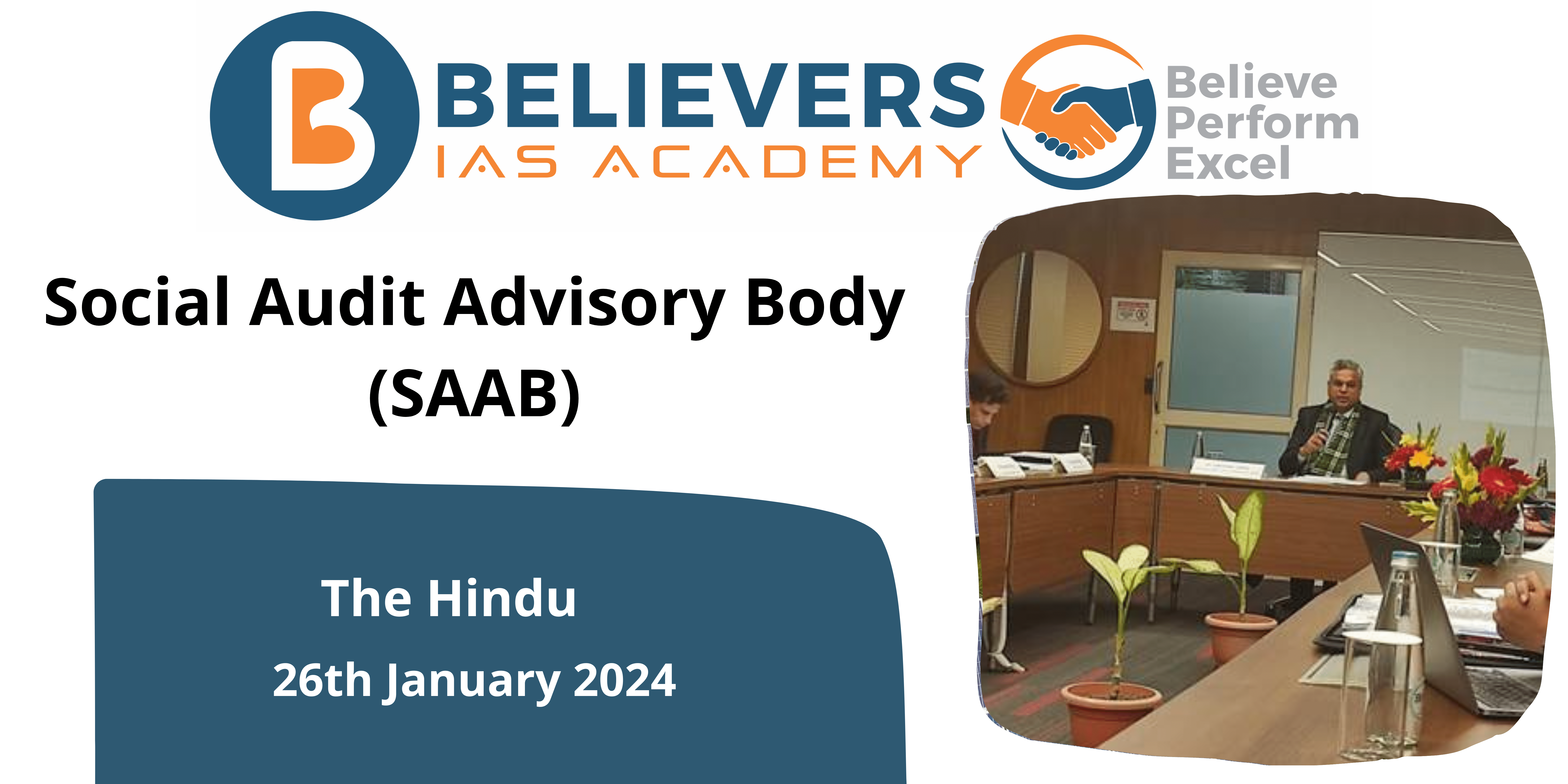Social Audit Advisory Body (SAAB)
Context:
Recently, the inaugural session of the Social Audit Advisory Body (SAAB) took place at the conference hall of the Dr. Ambedkar International Centre in New Delhi.
- The Secretary of the Department of Social Justice & Empowerment presided over the meeting.
- SAAB, a pioneering advisory body, has been instituted to provide guidance to the Ministry of Social Justice & Empowerment in the systematic integration of social audits across its diverse schemes.
Relevance:
GS-02, GS-03 (Growth and development)
Understanding Social Audit:
- The term “social audit” was coined by Howard Bowen in his 1953 book, Social Responsibilities of the Businessman.
- A social audit represents a methodical and independent evaluation of an organization’s or program’s social impact and ethical performance.
- It scrutinizes how well their actions and policies align with their professed values and objectives, particularly concerning their repercussions on communities, employees, and the environment.
- In India, Tata Iron and Steel Company Limited (TISCO), Jamshedpur, pioneered social audits in 1979, measuring its social performance. The concept of social audit was initiated by Mazdoor Kisan Shakti Sangathan (MKSS) in the early 1990s while combatting corruption in public works.
Distinctive Aspects of Social Audit:
- Focused on fact-finding rather than fault-finding.
- Establishes a platform for dialogue among various stakeholders.
- Facilitates timely grievance redressal.
- Strengthens democratic processes and institutions.
- Mobilizes public pressure for the improved implementation of programs.
Categories of Social Audits:
- Organizational: Evaluates a company’s overall social responsibility initiatives.
- Program-Specific: Concentrates on a particular program’s impact and efficacy.
- Financial: Examines the social and environmental implications of financial decisions.
- Stakeholder-Driven: Engages various stakeholders in the auditing process.
Challenges Associated with Social Audit in India:
- Insufficient Knowledge and Capability: Limited understanding among stakeholders, including local communities, hinders the efficient implementation of social audits.
- Restricted Engagement of Underrepresented Groups: Inadequate participation from marginalized or vulnerable groups leads to incomplete or prejudiced assessments.
- External Influences: Interference from political entities affects social audits, influencing their independence and objectivity.
- Constraints on Resources: Financial and human resource limitations pose obstacles to conducting comprehensive social audits, especially at the local level.
- Inadequate Capability and Training: Social audit units face difficulties due to a lack of funds and adequately trained professionals, compromising their overall effectiveness.
- Lack of Standardization: Absence of standardized procedures leads to variations in methodologies and reporting, making comparisons challenging.




